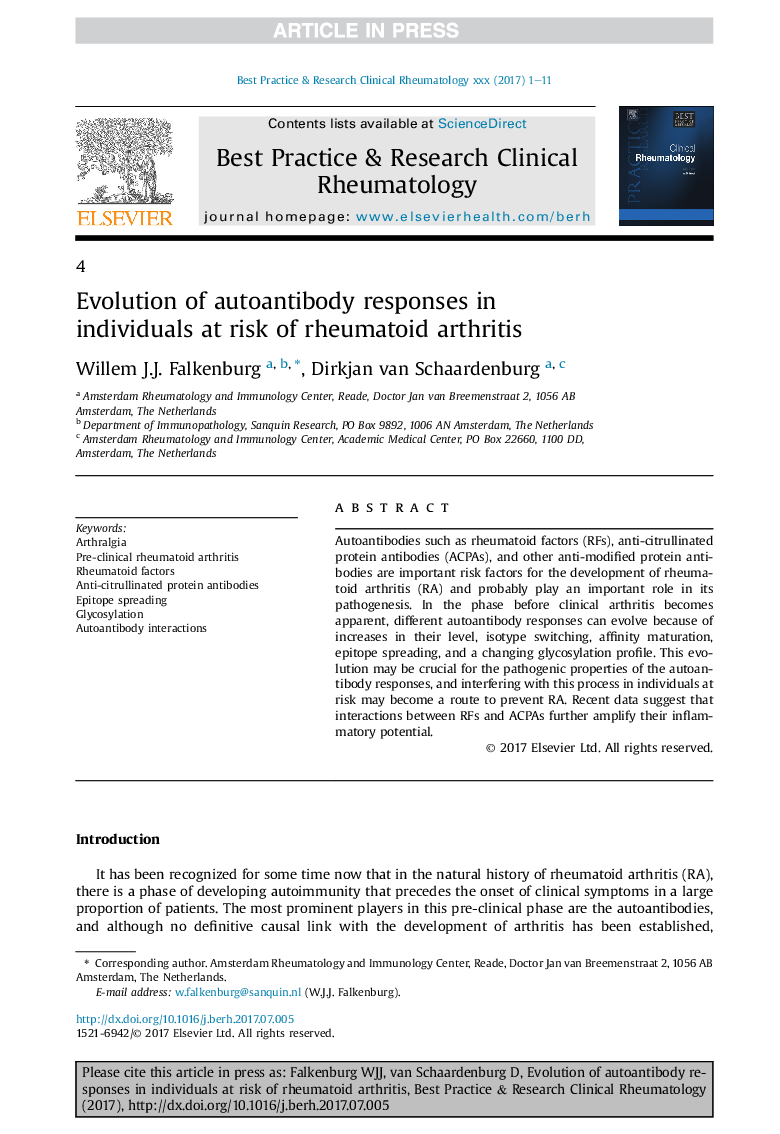| Article ID | Journal | Published Year | Pages | File Type |
|---|---|---|---|---|
| 8736613 | Best Practice & Research Clinical Rheumatology | 2017 | 11 Pages |
Abstract
Autoantibodies such as rheumatoid factors (RFs), anti-citrullinated protein antibodies (ACPAs), and other anti-modified protein antibodies are important risk factors for the development of rheumatoid arthritis (RA) and probably play an important role in its pathogenesis. In the phase before clinical arthritis becomes apparent, different autoantibody responses can evolve because of increases in their level, isotype switching, affinity maturation, epitope spreading, and a changing glycosylation profile. This evolution may be crucial for the pathogenic properties of the autoantibody responses, and interfering with this process in individuals at risk may become a route to prevent RA. Recent data suggest that interactions between RFs and ACPAs further amplify their inflammatory potential.
Keywords
Related Topics
Health Sciences
Medicine and Dentistry
Immunology, Allergology and Rheumatology
Authors
Willem J.J. Falkenburg, Dirkjan van Schaardenburg,
